Every year AMCN looks long and hard at Australia’s motorcycle racing history and beyond the obvious to select its Hall of Fame inductee.
Last year it was Jack Ahearn, a true unsung hero of grand prix racing who finished second in the 1964 500cc title in a triumph for the privateers. His feat was the equivalent of Cal Crutchlow beating factory rider Valentino Rossi to second in last season’s MotoGP (CC actually finished seventh).
For 2017 we have gonged Daryl Beattie. In his first full season of GP racing he finished third, a feat only equalled since by Rossi and Marc Márquez. Then, in 1995, he came second behind mighty Mick Doohan. Daryl was on track for a long and even more successful GP career when a series of accidents forced his early retirement aged just 27.
Rather than disappearing from the racing scene, Daryl reassessed his life to become a true ambassador of Australian motorcycling. From expert MotoGP commentating and widespread television work to launching and running a unique series of outback tours, he is constantly raising the profile of motorcycling in Australia.
Unlike in the GP world, Daz didn’t become an overnight success in television. Rather he crafted his new career with steady application and a calmness that cuts through the hyperbole of typical race commentating.
Off-screen, he uses his simple values of mateship and modesty to shape his everyday life.
How high has he raised the profile of the pastime we all love? At last year’s MotoGP he approached Rossi with his Network Ten film crew for an interview. The first question was asked by Rossi. It was about riding in the outback and what it involved. Daz had to answer questions rather than ask them.
Welcome to the AMCN Hall of Fame, Daryl. You really are a legend. But you’re also one of us, and your love of motorcycles and life in Australia is an inspiration for all.
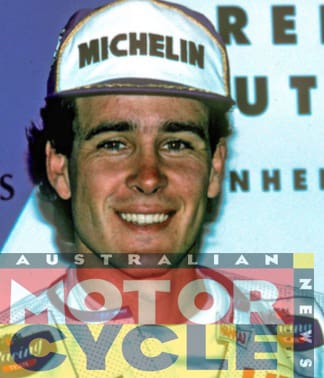
Past inductees
2013
Mick Doohan and Keith Campbell
MICK DOOHAN WORKED his way up through the ranks to be the most dominant grand prix racer of the 1990s.
He started aged 19 in 1984 on a Yamaha RZ350 and by 1988 had proved he was ready to take on the world by winning both legs at the Australian round of the World Superbike Championship.
This led to his debut in the 500cc Grand Prix Championship for Honda. In 1991 he was runner-up in the series, finishing on the rostrum an incredible 14 times from 15 starts.
He bounced back from severe crash injuries in 1992 to finish fourth overall the following year, then started a run of five consecutive world 500cc championship titles from 1994.
Keith Campbell was Australia’s first world grand prix motorcycle champion, winning the 350cc title in 1957.
He started racing as a teenager in the 1940s and at 19 headed to Europe to try his luck. Four years later he had secured a top works ride with Moto Guzzi, becoming the first world motorcycle road-racing champion from outside Europe.
Campbell was killed in a racing accident in 1958, aged 26.
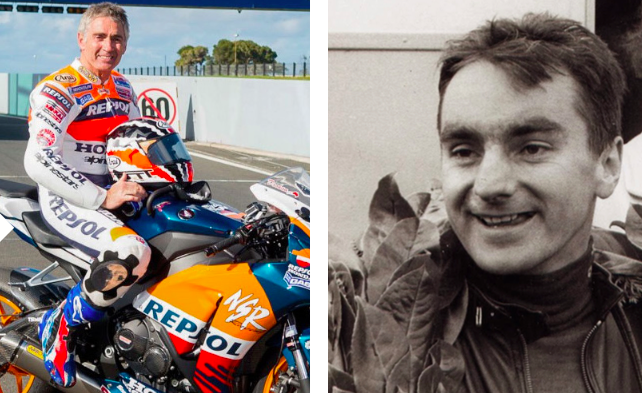
Mick Doohan and Keith Campbell
2014
Barry Smith
A specialist on small-capacity two-strokes, Barry Smith is an often overlooked Australian grand prix hero.
Inspired by Keith Campbell’s world championship in 1957, Smith headed to Europe in 1963. He raced in the 50cc, 250cc and 350cc classes from 1965 to 1981, with wins at the Isle of Man TT.
But his role as a factory rider for Spanish brand Derbi defined his career. He was the first foreign rider to race for Derbi.
Smith helped develop Derbi’s tiny 50cc GP racer with its 14-speed two-stroke engine. He also gave the marque its first GP win in 1968 and was set to give the factory its first 50cc title in 1969 when mechanical issues hobbled him. Instead, teammate Ángel Nieto won the title.
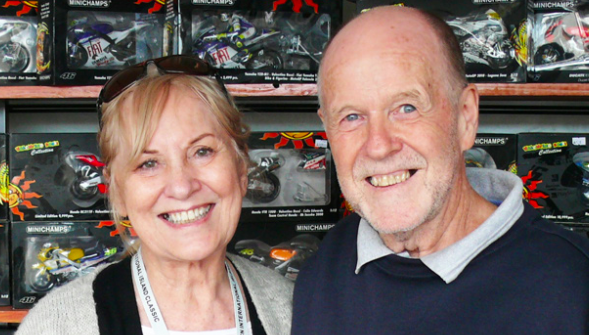
Barry Smith
2015
Jeremy Burgess
SIMPLY adding up the figures tells the story of the brilliant career of grand prix crew chief Jeremy Burgess: more than 160 GP wins and 14 world titles.
Victory with Wayne Gardner in 1987 brought grand prix motorcycle racing into Australian loungerooms via television. Honda then entrusted a young Mick Doohan to Burgess and the result was five consecutive 500cc titles. And all that is on top of something that will never be repeated: Freddie Spencer’s 250/500cc title double in 1985.
Burgess then became part of the Valentino Rossi fairytale, winning seven titles, including the last 500cc title (for Honda) and the first four-stroke MotoGP (Yamaha), it was Yamaha’s first premier class title since 1992.
Burgess proved to be the best tactician of his era.
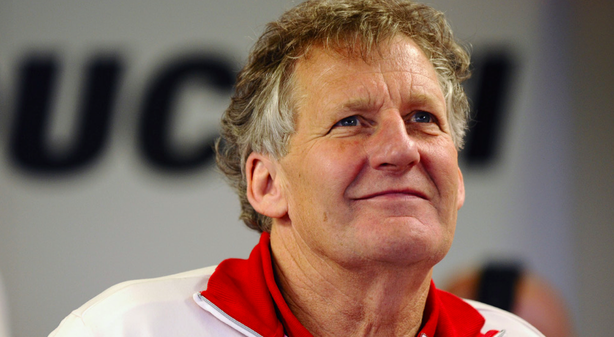
Jeremy Burgess
2016
Jack Ahearn
In 1964 Jack became unofficial privateer world champion. He finished second in the 1964 world 500cc championship behind Mike Hailwood, who rode an unbeatable works MV Agusta four-cylinder. Jack was on an underpowered, self-owned and maintained Manx Norton single-cylinder.
When we gonged Jack he said adamantly: “I was no world champion, but I could ride a bike fast and safely and enjoy it.”
Jack did it all himself without any major factory support. It propelled him into the top echelon of riders despite his advancing years. His greatest GP achievement, in 1964, came when he was 40 years old.
It took another two decades and Wayne Gardner’s world title for an Australian to better Jack’s effort.
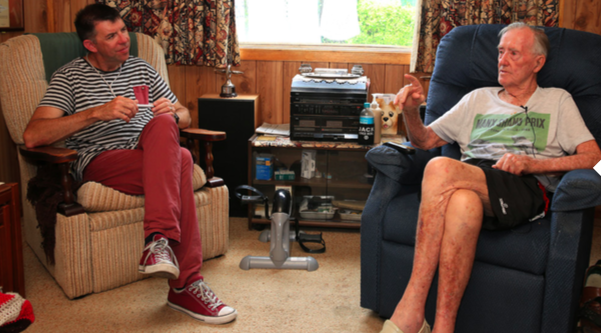
Jack Ahearn